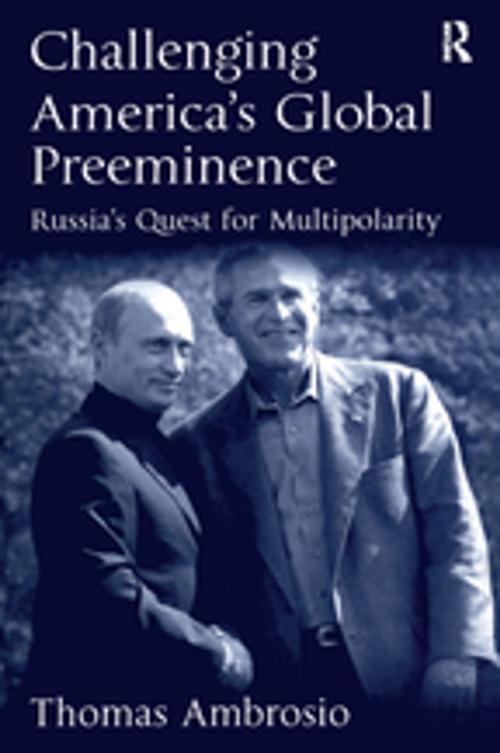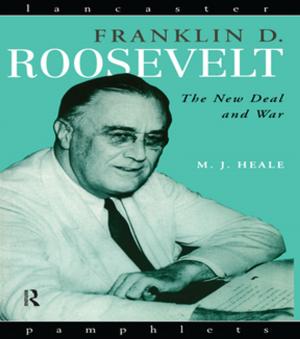Challenging America's Global Preeminence
Russia's Quest for Multipolarity
Nonfiction, Social & Cultural Studies, Political Science, International, International Relations| Author: | Thomas Ambrosio | ISBN: | 9781351952781 |
| Publisher: | Taylor and Francis | Publication: | July 5, 2017 |
| Imprint: | Routledge | Language: | English |
| Author: | Thomas Ambrosio |
| ISBN: | 9781351952781 |
| Publisher: | Taylor and Francis |
| Publication: | July 5, 2017 |
| Imprint: | Routledge |
| Language: | English |
Examining the shifts in Russian foreign policy and their potential impact on the status and influence of the United States in the international system, this outstanding volume examines why the Kremlin initially sought an alliance with the United States and the internal and external reasons why such a policy was unsustainable. In particular, it looks for an explanation for the post-Cold War vacillations in Russian foreign policy. Russia made several decisions which were perceived domestically as being unacceptable capitulations to American interests. Consequently, a pro-Western foreign policy became incompatible with Russian political culture. The rapprochement following 9/11 was destined to be temporary due to the decision by the Bush administration to invade Iraq. Contributing to the fields of international relations and comparative foreign policy, this study provides a fresh approach to the balance/bandwagon issue and takes into account the global repercussions of the recent war in Iraq. It will be of particular value to specialists in Russian foreign policy, international relations theory, and US foreign policy.
Examining the shifts in Russian foreign policy and their potential impact on the status and influence of the United States in the international system, this outstanding volume examines why the Kremlin initially sought an alliance with the United States and the internal and external reasons why such a policy was unsustainable. In particular, it looks for an explanation for the post-Cold War vacillations in Russian foreign policy. Russia made several decisions which were perceived domestically as being unacceptable capitulations to American interests. Consequently, a pro-Western foreign policy became incompatible with Russian political culture. The rapprochement following 9/11 was destined to be temporary due to the decision by the Bush administration to invade Iraq. Contributing to the fields of international relations and comparative foreign policy, this study provides a fresh approach to the balance/bandwagon issue and takes into account the global repercussions of the recent war in Iraq. It will be of particular value to specialists in Russian foreign policy, international relations theory, and US foreign policy.















